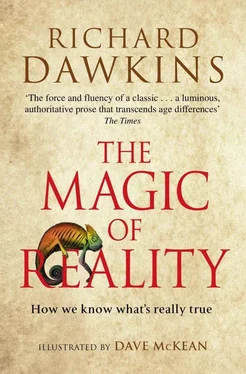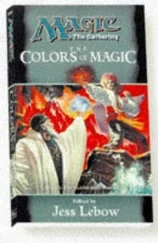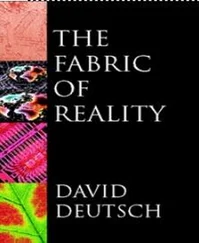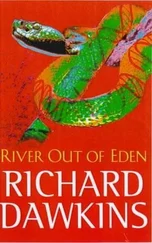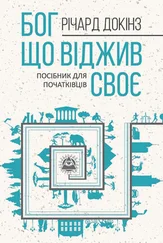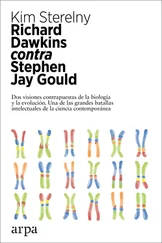1. It really happened. Water really did turn into wine.
2. It was a clever conjuring trick.
3. Nothing of the kind happened at all. It is just a story, a piece of fiction, that somebody made up. Or there was a misunderstanding of something far less remarkable which really did happen.
I think there is not much doubt about the order of likelihood here. If Explanation 1 were true, it would violate some of the deepest scientific principles we know, for just the same kind of reason we met in the first chapter when talking about pumpkins and coaches, frogs and princes. Molecules of pure water would have to have been transformed into a complex mixture of molecules, including alcohol, tannins, sugars of various kinds and lots of others. The alternative explanations will have to be very unlikely indeed, if this one is to be preferred over them.
A conjuring trick is possible (much cleverer tricks than that are done regularly on stage and on television) – but less likely than Explanation 3. Why bother even to suggest a conjuring trick, given the lack of evidence that the incident occurred at all? Why even think about a conjuring trick, when Explanation 3 is so very likely, by comparison? Somebody made up the story. People invent stories all the time. That’s what fiction is. Because it is so very plausible that the story is fiction, we don’t need to trouble ourselves to think about conjuring tricks, still less about real miracles that violate the laws of science and overturn everything we know and understand about how the universe works.
As it happens, we know that lots of fiction has been made up about this particular preacher called Jesus. For example, there’s a pretty little song called the Cherry Tree Carol, which you may have sung or heard. It’s about when Jesus was still inside his mother Mary’s womb (that’s the same Mary as in the Fatima story, by the way), and she was walking with her husband Joseph by a cherry tree. Mary wanted some cherries, but they were too high on the tree and she couldn’t reach them. Joseph wasn’t in the mood to climb trees, but…
Then up spoke baby Jesus
From in Mary’s womb:
‘Bend down, thou tallest branch,
That my mother might have some.
Bend down, thou tallest branch,
That my mother might have some.’
Then bent down the tallest branch,
Till it touched Mary’s hand.
Cried she, ‘Oh, look thou, Joseph,
I have cherries by command.’
Cried she, ‘Oh, look thou, Joseph,
I have cherries by command.’
You won’t find the cherry-tree story in any ancient holy book. Nobody, literally nobody who is at all knowledgeable or well educated, thinks it is anything but fiction. Plenty of people think the water-into-wine story is true, but everybody agrees that the cherry-tree story is fiction. The cherry-tree story was made up only about 500 years ago. The water-into-wine story is older. It appears in one of the four gospels of the Christian religion (the Gospel of John: none of the other three, as it happens), but there is no reason to believe it is anything but a made-up story – just one made up a few centuries earlier than the one about the cherry tree. All four of the gospels, by the way, were written long after the events that they purport to describe, and not one of them by an eye witness. It is safe to conclude that the water-into-wine story is pure fiction, just like the cherry-tree story.
We can say the same thing about all alleged miracles, all ‘supernatural’ explanations for anything. Suppose something happens that we don’t understand, and we can’t see how it could be fraud or trickery or lies: would it ever be right to conclude that it must be supernatural? No! As I explained in Chapter 1, that would put an end to all further discussion or investigation. It would be lazy, even dishonest, for it amounts to a claim that no natural explanation will ever be possible. If you claim that anything odd must be ‘supernatural’ you are not just saying you don’t currently understand it; you are giving up and saying that it can never be understood.
Today’s miracle, tomorrow’s technology
There are things that not even the best scientists of today can explain. But that doesn’t mean we should block off all investigation by resorting to phoney ‘explanations’ invoking magic or the supernatural, which don’t actually explain at all. Just imagine how a medieval man – even the most educated man of his era – would have reacted if he had seen a jet plane, a laptop computer, a mobile telephone or a satnav device. He would probably have called them supernatural, miraculous. But these devices are now commonplace; and we know how they work, for people have built them, following scientific principles. There never was a need to invoke magic or miracles or the supernatural, and we now see that the medieval man would have been wrong to do so.
We don’t have to go back as far as medieval times to make the point. A gang of Victorian international criminals equipped with modern mobile phones could have co-ordinated their activities in ways that would have looked like telepathy to Sherlock Holmes. In Holmes’s world, a suspect in a murder case who could prove that he was in New York the evening after the murder was committed in London would have a perfect alibi, because in the late nineteenth century it was impossible to be in New York and in London on the same day. Anyone who claimed otherwise would seem to be invoking the supernatural. Yet modern jet planes make it easy. The eminent science-fiction writer Arthur C. Clarke summed the point up as Clarke’s Third Law: Any sufficiently advanced technology is indistinguishable from magic .
If a time machine were to carry us forward a century or so, we would see wonders that today we might think impossible – miracles. But it doesn’t follow that everything we might think impossible today will happen in the future. Science-fiction writers can easily imagine a time machine – or an anti-gravity machine, or a rocket that can carry us faster than light. But the mere fact that we can imagine them is no reason to suppose that such machines will one day become reality. Some of the things we can imagine today may become real. Most will not.
The more you think about it, the more you realize that the very idea of a supernatural miracle is nonsense. If something happens that appears to be inexplicable by science, you can safely conclude one of two things. Either it didn’t really happen (the observer was mistaken, or was lying, or was tricked); or we have exposed a shortcoming in present-day science. If present-day science encounters an observation, or an experimental result, that it cannot explain, then we should not rest until we have improved our science so that it can provide an explanation. If it requires a radically new kind of science, a revolutionary science so strange that old scientists scarcely recognize it as science at all, that’s fine too. It’s happened before. But don’t ever be lazy enough – defeatist enough, cowardly enough – to say ‘It must be supernatural’ or ‘It must be a miracle’. Say instead that it’s a puzzle, it’s strange, it’s a challenge that we should rise to. Whether we rise to the challenge by questioning the truth of the observation, or by expanding our science in new and exciting directions, the proper and brave response to any such challenge is to tackle it head-on. And, until we have found a proper answer to the mystery, it’s perfectly OK simply to say, ‘This is something we don’t yet understand, but we’re working on it.’ Indeed, it is the only honest thing to do.
Miracles, magic and myths – they can be fun, and we have had fun with them throughout this book. Everybody likes a good story, and I hope you enjoyed the myths with which I began most of my chapters. But even more I hope that, in every chapter, you enjoyed the science that came after the myths. I hope you agree that the truth has a magic of its own. The truth is more magical – in the best and most exciting sense of the word – than any myth or made-up mystery or miracle. Science has its own magic: the magic of reality.
Читать дальше
